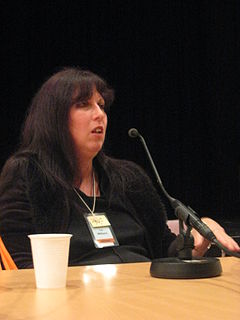A Quote by Simon Critchley
There's a floating distraction in the contemporary world, life at a distance enabled by technology. I want people to commit at the level of their subjectivity. The idea of subjective commitment is at the core of ethics, something that divides the self from itself. I become an ethical self. I cannot meet that ideal, I cannot fulfill it, it divides me from myself and it makes me strive harder. This ideal subjective ethical drive is at the heart of an absolutely earnest, radical politics that insists that people will be able to engage with each other, and they're lifted from irony at that point.
Quote Topics
Able
Absolutely
Become
Cannot
Commit
Commitment
Contemporary
Contemporary World
Core
Distance
Distraction
Divides
Drive
Each
Earnest
Engage
Ethical
Ethics
Floating
Fulfill
Harder
Heart
Idea
Ideal
Irony
Itself
Level
Life
Lifted
Makes
Me
Meet
Myself
Other
People
Point
Politics
Radical
Self
Something
Strive
Subjective
Subjectivity
Technology
Want
Will
World
Related Quotes
It is sometimes said that the tragedy of an artist's life is that he cannot realise his ideal. But the true tragedy that dogs the steps of most artists is that they realise their ideal too absolutely. For, when the ideal is realised, it is robbed of its wonder and its mystery, and becomes simply a new starting-point for an ideal that is other than itself.
It cannot be denied that Islam, regarded as an ethical ideal plus a certain kind of polity - by which expression I mean a social structure regulated by a legal system and animated by a specific ethical ideal - has been the chief formative factor in the life-history of the Muslims of India. It has furnished those basic emotions and loyalties which gradually unify scattered individuals and groups, and finally transform them into a well-defined people, possessing a moral consciousness of their own.
Ethics cannot be based upon our obligations toward people, but they are complete and natural only when we feel this Reverence for Life and the desire to have compassion for and to help all creatures insofar as it is in our power. I think that this ethic will become more and more recognized because of its great naturalness and because it is the foundation of a true humanism toward which we must strive if our culture is to become truly ethical.
The problem is one of opposition between subjective and objective points of view. There is a tendency to seek an objective account of everything before admitting its reality. But often what appears to a more subjective point of view cannot be accounted for in this way. So either the objective conception of the world is incomplete, or the subjective involves illusions that should be rejected.
For most women being other-directed, focused on how other people feel and nurturing them, was (and can still be) a quality that girls were (are) heavily pressured to become. The unselfish or Self-less woman was (is) seen as ideal. The realization and articulation that the cultural ideal of the perfect woman was someone who had no sense of Self and was a key part of the angry energy that drove Feminism to its swift success.
To the man who is truly ethical all life is sacred, including that which from the human point of view seems lower in the scale. He makes distinctions only as each case comes before him, and under the pressure of necessity, as, for example, when it falls to him to decide which of two lives he must sacrifice in order to preserve the other. But all through this series of decisions he is conscious of acting on subjective grounds and arbitrarily, and knows that he bears the responsibility for the life which is sacrificed.
People who have never had an ideal may hope to find one; they are in a better state than the people who allow the circumstances of life to break their ideal. To fall beneath one's ideal is to lose one's track in life; then confusion rises in the mind, and that light which one should hold high becomes covered and obscured, so that it cannot shine out to light one's path.
I think of myself as being an ethical man, but I don't try to teach ethics. I have no message. I know little about contemporary life. I don't read a newspaper. I dislike politics and politicians. I belong to no party whatever. My private life is a private life. I try to avoid photography and publicity.
As a matter of ethics - our broader social life needs to be constrained by law and other devices - resolving at the societal level matters that should not be left for individual ethical negotiation. What is important - in the end - is that we are enabled to flourish in ways that acknowledge our dignity.







































